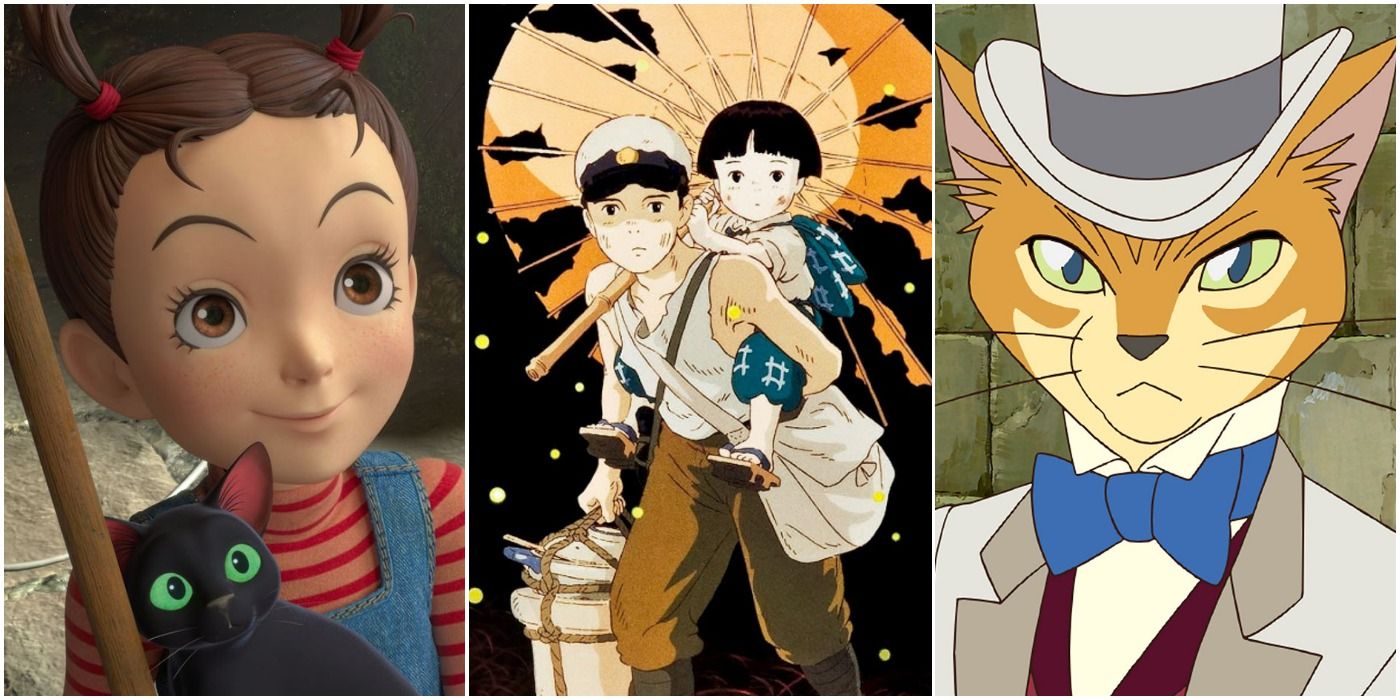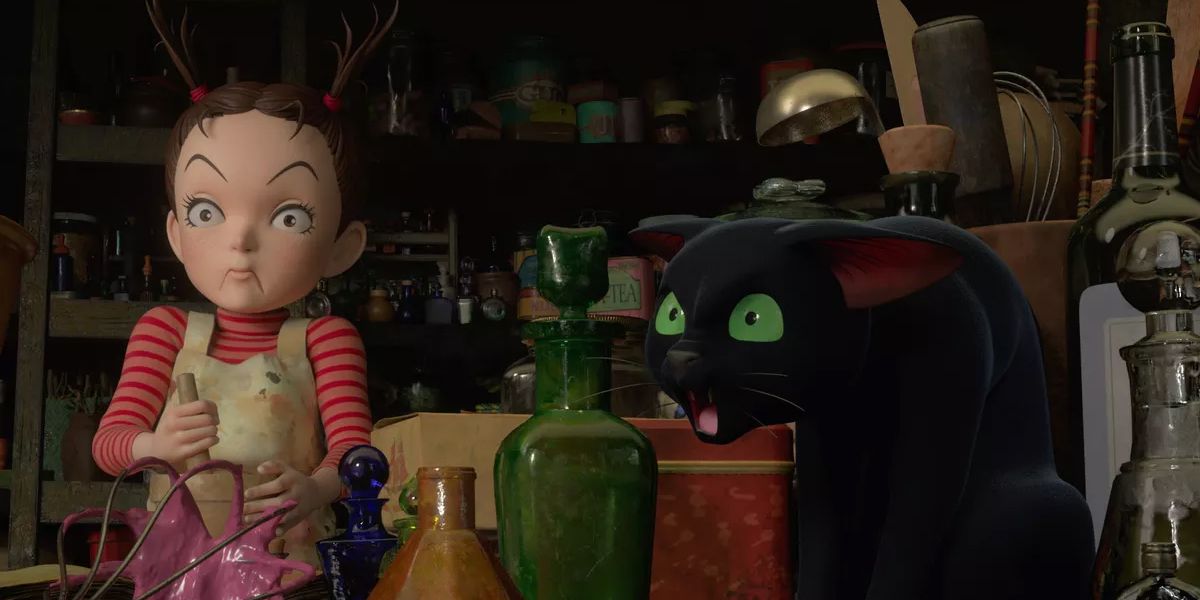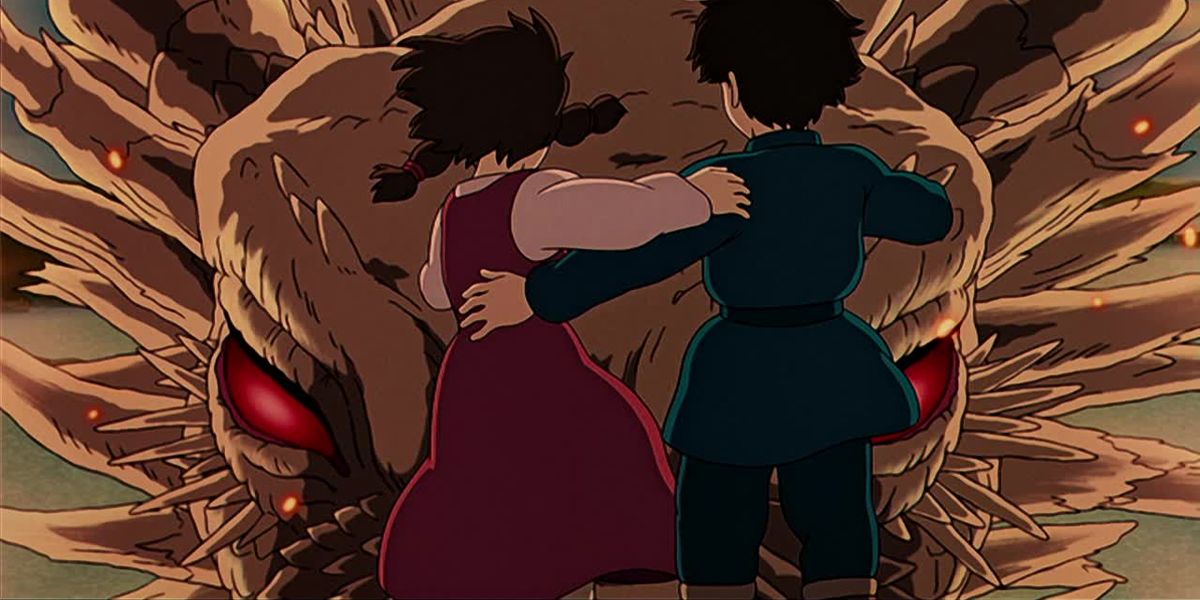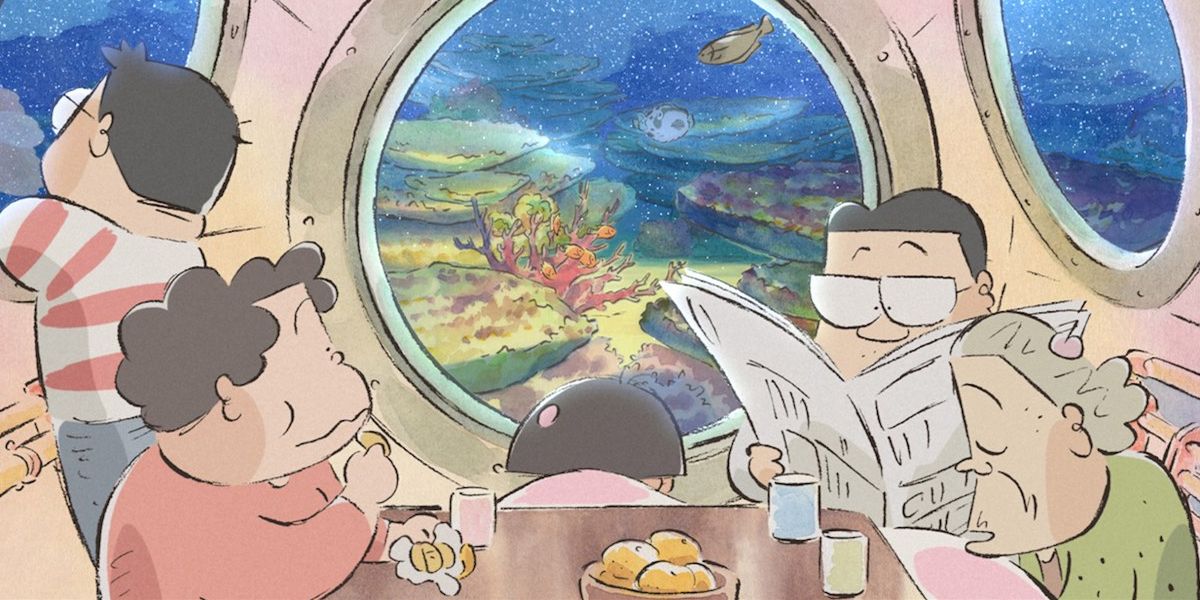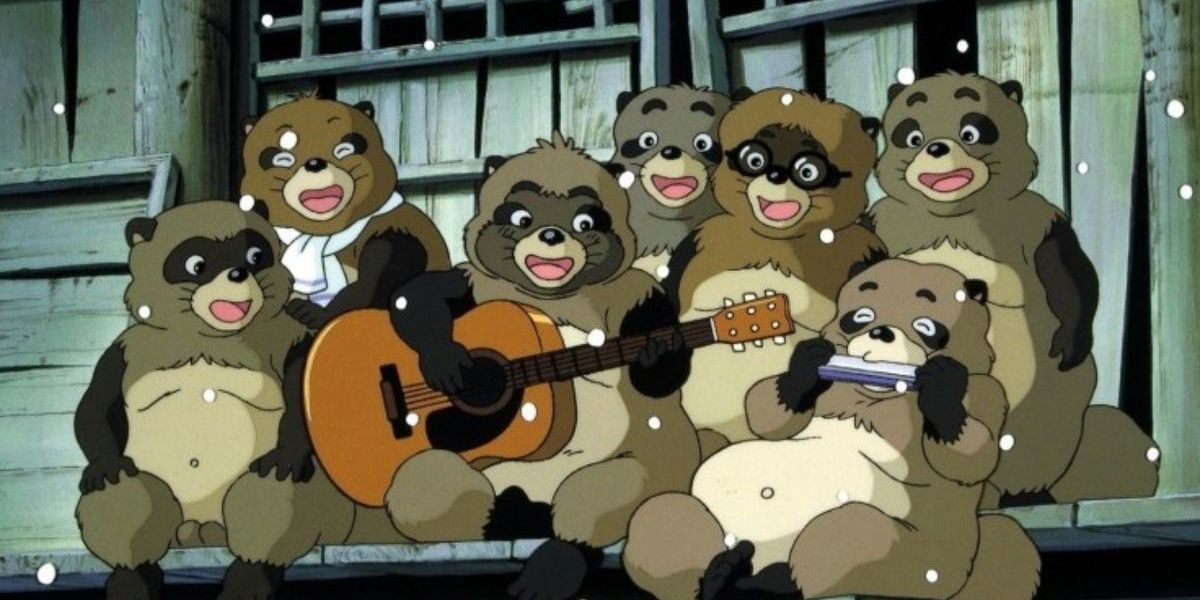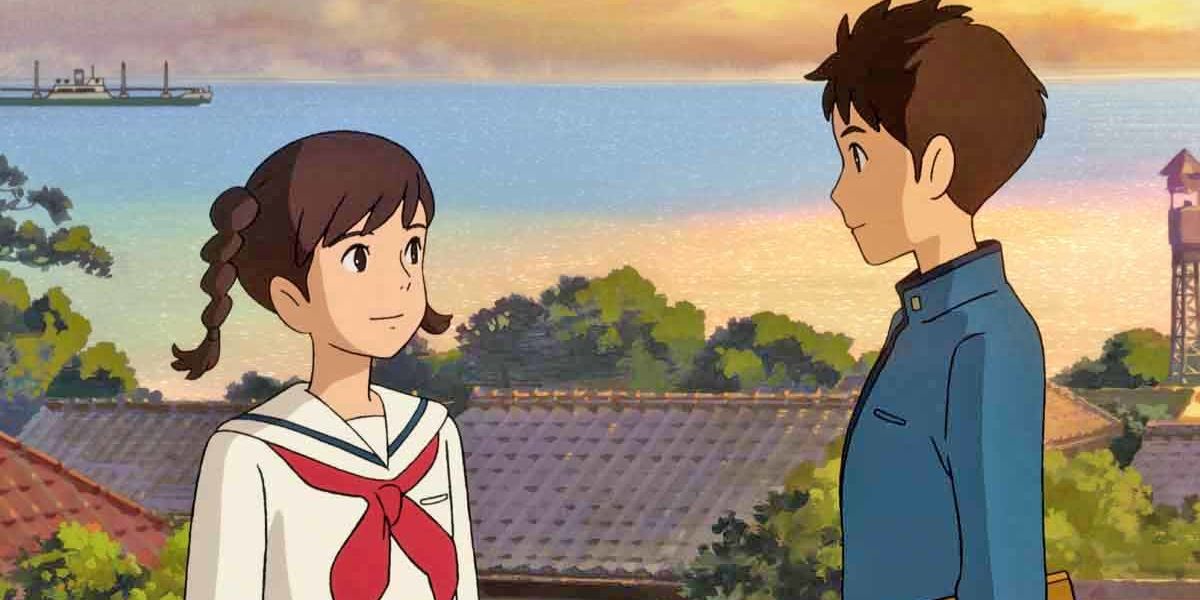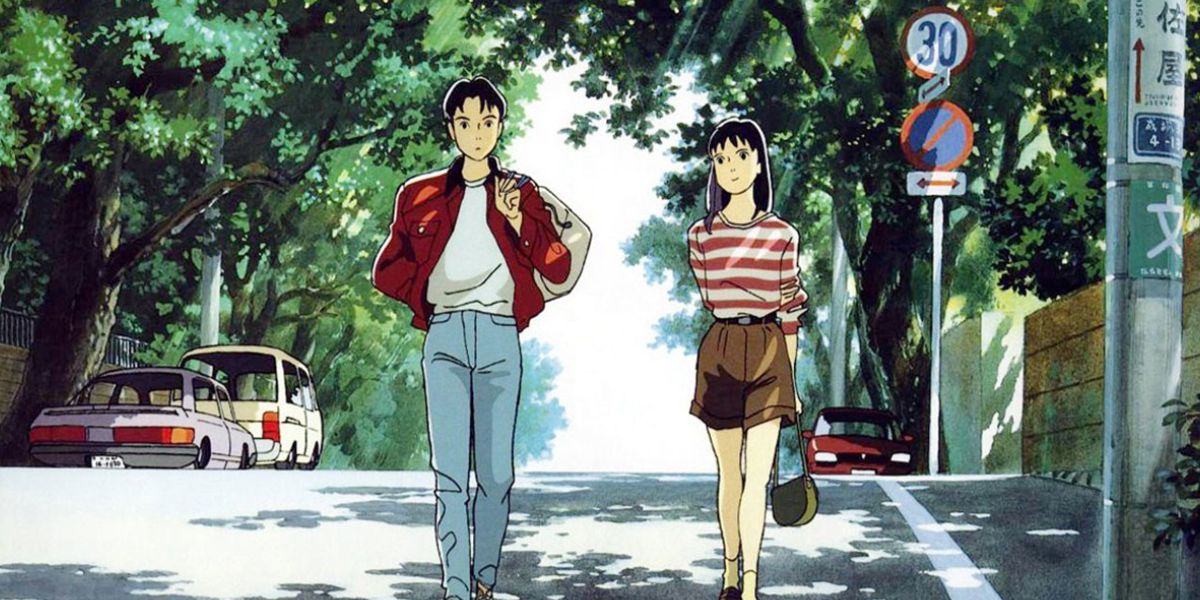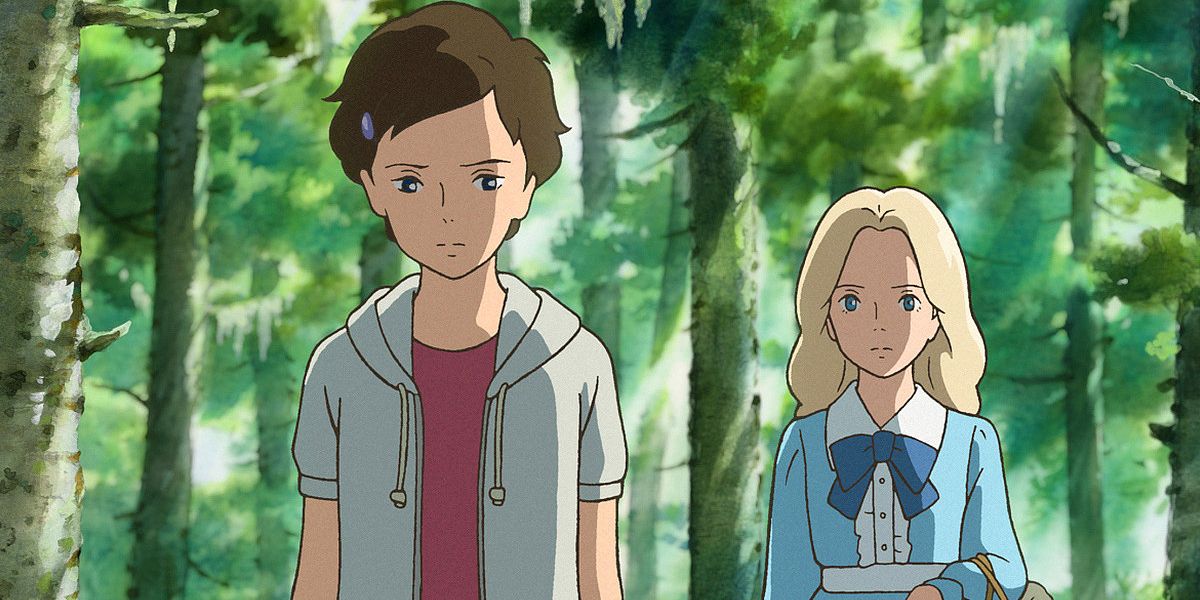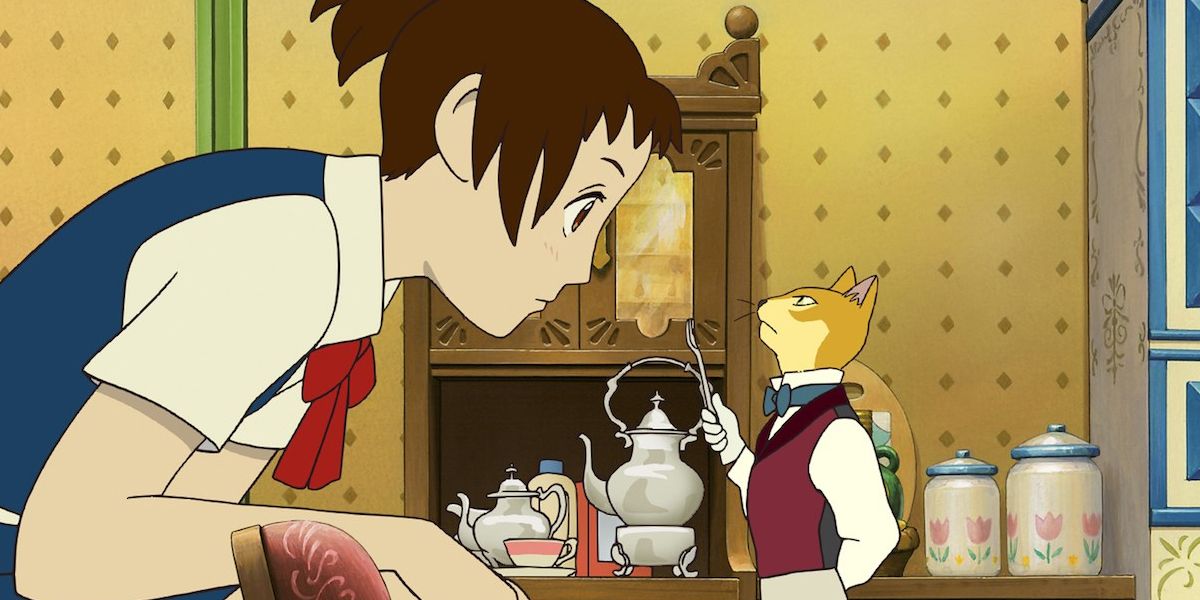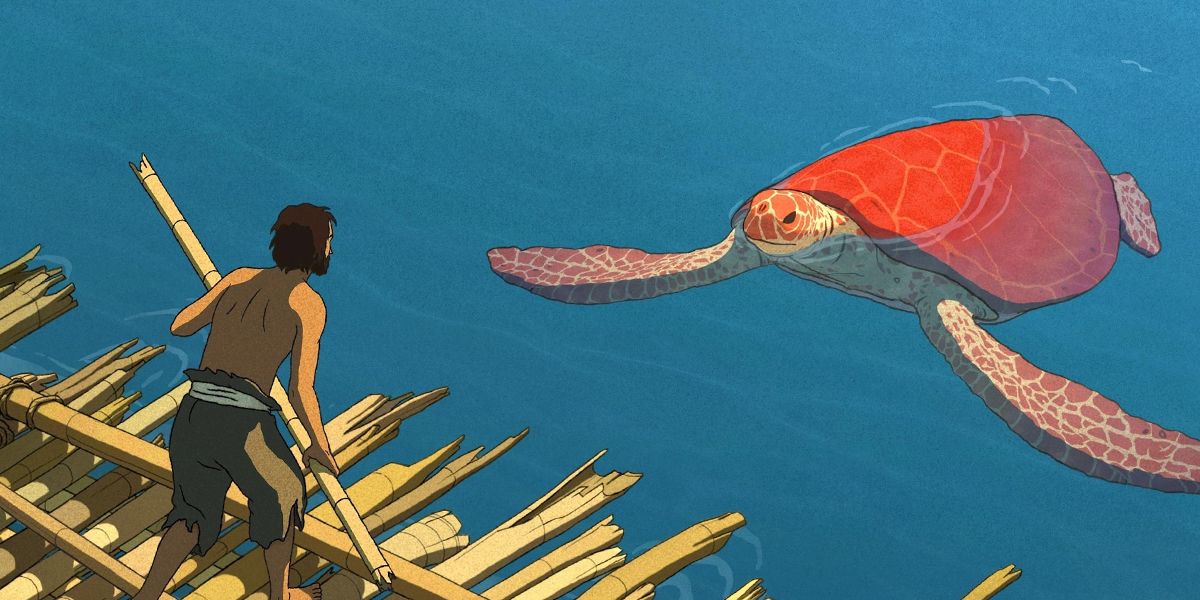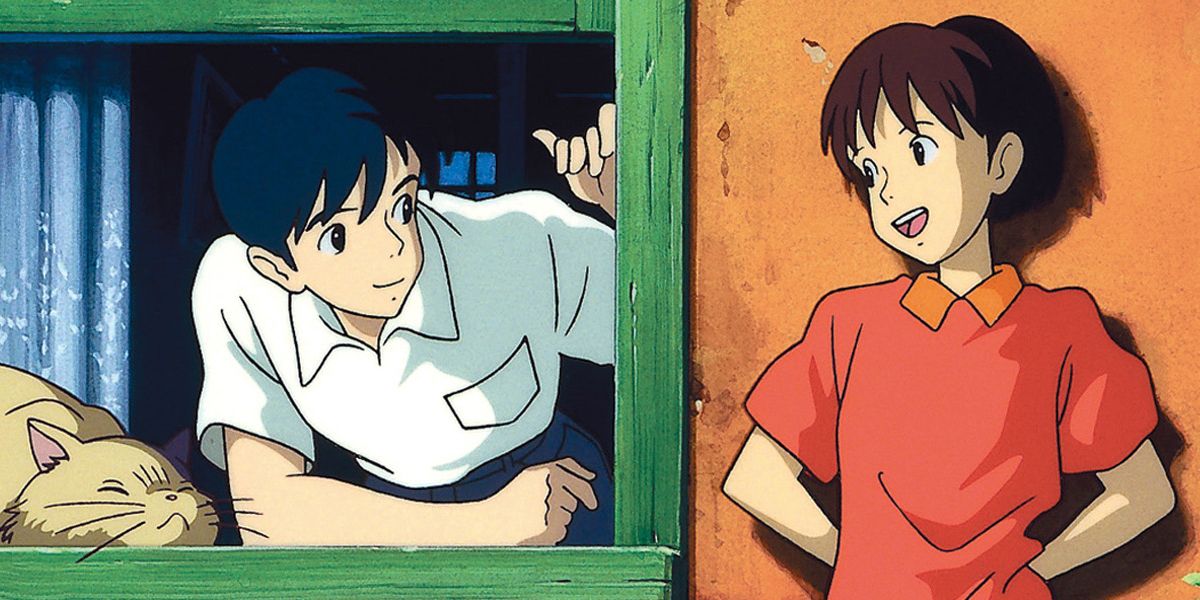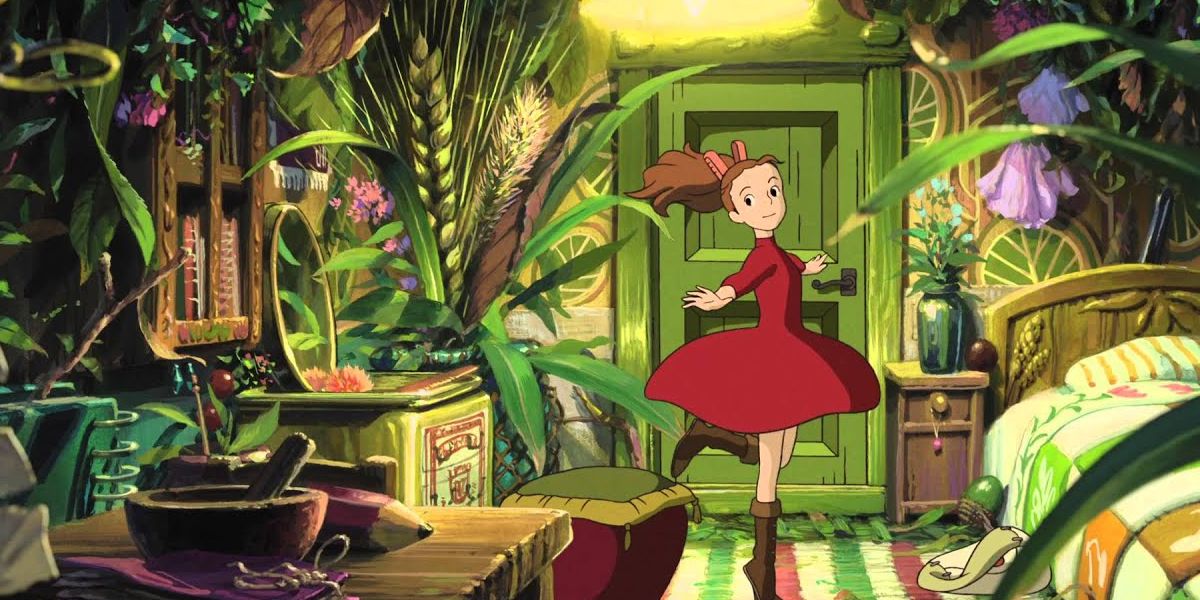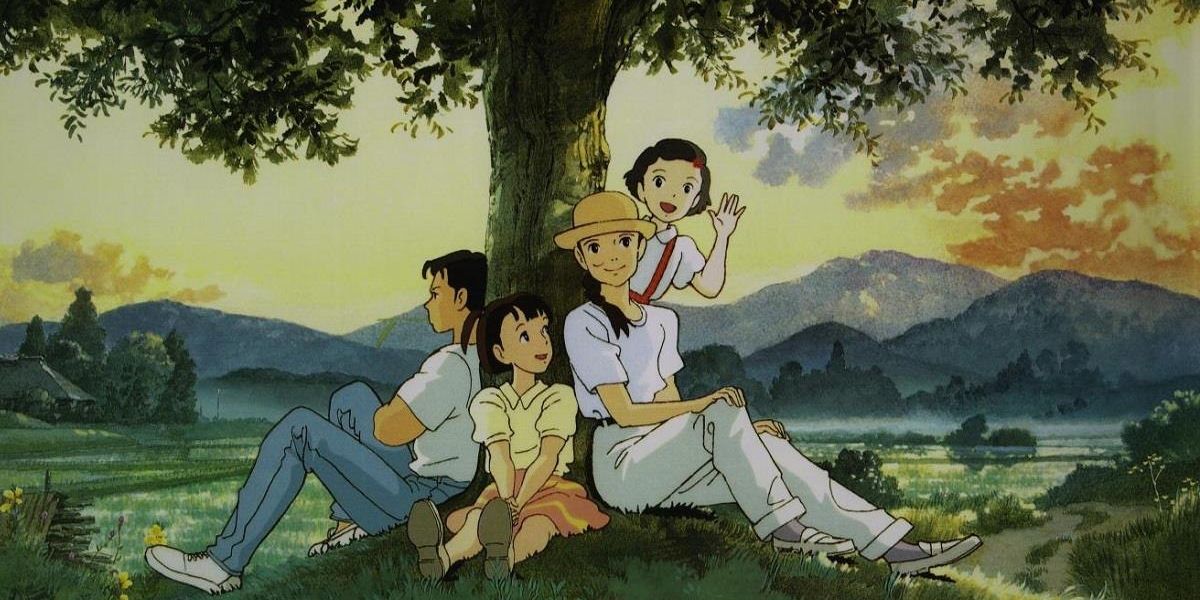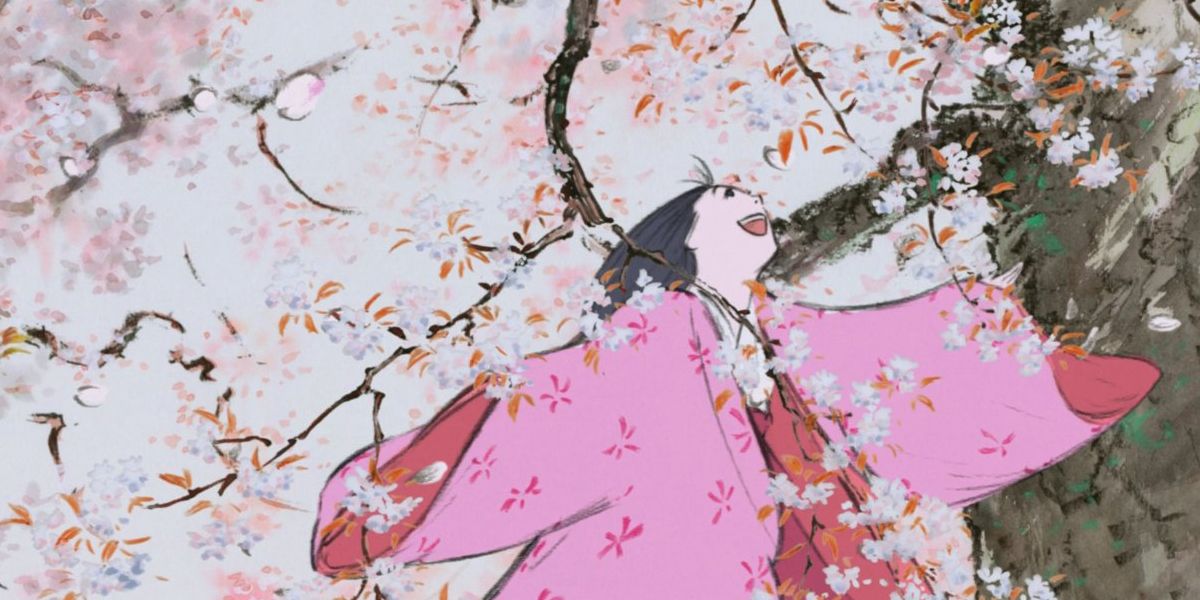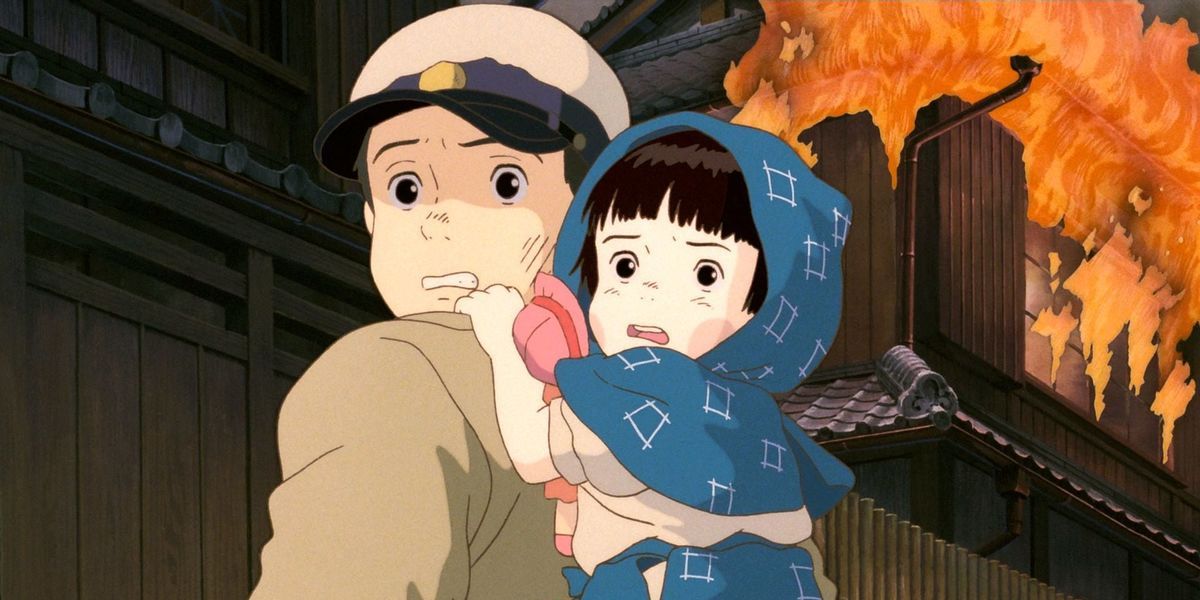In the world of animation, few companies have earned as much respect as Studio Ghibli. Founded in 1985 by Hayao Miyazaki, Isao Takahata, Toshio Suzuki, and Yasuyoshi Tokuma, Studio Ghibli has spent the best part of 35 years crafting visually stunning and narratively dense movies, ones that have helped introduce anime to western nations. Its pedigree is beyond doubt, with Miyazaki's Spirited Away being the first (and currently only) anime film to win an Academy Award for Best Animated Feature.
Miyazaki is synonymous with Ghibli, as the filmmaker was behind a large majority of the studio's most celebrated works. However, the company's portfolio does not start and end with the director of Princess Mononoke and My Neighbor Totoro; in fact, even without Miyazaki's films, Studio Ghibli's resume is nothing short of remarkable. How do all these projects rank according to their Rotten Tomatoes scores?
14 Earwig and the Witch (33%)
Ghibli's most recent film is a stark departure from the norm for the company. While the studio has occasionally experimented with unique art styles, Earwig and the Witch's switch to 3D animation seems motivated by external influences rather than narrative ones. All things considered, the film's visuals are about average, but they lack any of the endearing whimsy often found in Ghibli's projects. Unfortunately, the characters are also not fleshed out enough, even if they are quite likable.
While there are worse ways to spend 90 minutes, Earwig and the Witch marks a disappointing and forgettable low for Studio Ghibli.
13 Tales From Earthsea (43%)
Hayao Miyazaki's son, Gorō Miyazaki, made his directorial debut with 2006's Tales from Earthsea, Studio Ghibli's lowest-rated film at that point in time. Tackling themes of nature and balance, Tales from Earthsea very much feels like an attempt to replicate the magic of Hayao Miyazaki's films, albeit one that is largely stripped of the human core or playfulness found in the latter's works.
Tales from Earthsea is by no means a terrible debut for a first-time director, it is just not an especially engaging one.
12 My Neighbors the Yamadas (78%)
Isao Takahata is a highly influential director that not only helped shape Studio Ghibli's voice as a co-founder but the anime industry in general. Takahata's films tend to be rather intimate affairs, often revolving around relationships and families. My Neighbors the Yamadas consists of a series of mostly self-contained stories centering around the titular family, with the film covering events that many people should be able to relate to.
Nowadays, slice of life is one of the most common genres explored in anime, but that was not the case in 1999. While not the director's greatest project, My Neighbors the Yamadas is an incredibly easy sit.
11 Pom Poko (85%)
Pom Poko tells the timeless tale of tanuki trying to protect their natural homes from humans and, by extension, modernization. At nearly two hours, Pom Poko is perhaps a touch too long for its own good, but this is still a journey worth taking.
The film is at its most entertaining during its early stages when the focus is primarily on lightheartedly depicting the tanuki's way of life. Once things take a turn for the more serious, Pom Poko becomes a somber cautionary tale that (wisely) offers no solutions.
10 From Up on Poppy Hill (86%)
While Tales From Earthsea and Earwig and the Witch fail to meet Studio Ghibli's standard of quality, Gorō Miyazaki's From Up on Poppy Hill rests comfortably as a respectable mid-tier entry in the company's filmography.
Set in the early 1960s, From Up on Poppy Hill pays a lot of respect to the past through its authentic presentation and deft characterization of its players. Telling a cute and small story, this 2011 release offers a glimpse into an era many people did not experience directly.
9 Ocean Waves (88%)
A TV movie directed by Tomomi Mochizuki, Ocean Waves was designed to be a smaller entry in Studio Ghibli's portfolio. With a brisk running time and a grounded story about young love, this 1993 film explores, through a flashback, the relationship between two teenagers and the way they would go on to influence each other, notably the impact Rikako has on Taku.
Ocean Waves is a comfortable watch, as there is very little in the way of tension despite the presence of a love triangle.
8 When Marnie Was There (91%)
At the moment, it could be argued that 2014's When Marnie Was There was the last traditional film released by Studio Ghibli, although that should change in a few years' time when Hayao Miyazaki's How Do You Live? hits the scene.
Tackling grief, depression, and isolation, When Marnie Was There is an emotionally captivating tale about maturity and innocence, all told through the endearing (and complex) relationship that forms between the titular girl and Anna.
7 The Cat Returns (91%)
Studio Ghibli has mastered the act of balancing child-like wonder with adult concepts, crafting films that can be enjoyed by all ages in the process. In many ways, The Cat Returns is the studio's only children's film, as it lacks the ambition and depth of most of the company's other projects.
That said, The Cat Returns also happens to be extremely charming and entertaining. Sometimes, a fun movie is just enough.
6 The Red Turtle (93%)
Co-produced by Studio Ghibli and Wild Bunch, The Red Turtle is a parable movie about a man stranded on an island who comes to appreciate his new surroundings through the influence of a (shapeshifting) turtle.
Stripped of any dialogue, The Red Turtle is very much a mood piece that aims to engross audiences in its lively (and mesmerizing) environment. This 2016 film is a magical experience that is quite unlike anything else that makes up Studio Ghibli's resume.
5 Whisper of the Heart (94%)
The only feature film directed by Yoshifumi Kondō prior to his untimely passing in 1998, Whisper of the Heart is a beautiful exploration of adolescence, the creative arts, and self-discovery. The story primarily revolves around Shizuku Tsukishima, a young girl with a passion for writing but who is also hesitant to embrace it, and her friendship with Seiji Amasawa, a violinist who is already pursuing his dreams.
Whisper of the Heart's animation is naturally gorgeous, but its characters are the ones that steal the show.
4 The Secret World of Arrietty (95%)
Based on Marty Norton's The Borrowers books, The Secret World of Arrietty envisions a world where miniature people exist beneath the floors and walls. The source material and this type of concept have been tackled before, but the story benefits greatly from the freedom afforded by animation and Ghibli's willingness to not talk down to its audience.
The heart of this tale is the friendship between a normal-sized human, Shō, and the tiny Arrietty. There will be laughs, screams, and a few tears.
3 Only Yesterday (100%)
Isao Takahata's Only Yesterday needed a couple of decades to receive the recognition it warrants outside of Japan, but it eventually cemented its place among anime's greats. Released in 1991, Only Yesterday follows a 27-year-old woman, Taeko, who takes a trip to the countryside.
Along the way, the isolated protagonist relives various memories from her childhood, ones that provide insight into the person that she has become without revealing every noteworthy thing about her. Only Yesterday is an introspective, mature, and complex film.
2 The Tale of the Princess Kaguya (100%)
Isao Takahata's final film, The Tale of the Princess Kaguya serves as a showcase of all the things that made the filmmaker such a prominent figure in the entertainment industry. Its minimalist art style highlights Takahata's willingness to push anime into new directions on a visual level. Meanwhile, the film's narrative blends social, cultural, and historical themes to create something that is truly timeless.
The Tale of the Princess Kaguya is a work of art of the highest caliber, a project that can define a generation or a career.
1 Grave of the Fireflies (100%)
In a resume filled with almost nothing but masterpieces, Grave of the Fireflies sits as Isao Takahata's greatest work. A hauntingly personal war story that is beyond depressing, Grave of the Fireflies follows two children as they attempt to survive World War II.
Brutally honest and devoid of any heroism, Grave of the Fireflies is specifically about the innocent victims who are consumed by these types of situations. Once watched, there is no forgetting this film, but its heavy subject matter makes repeat viewings difficult to stomach.

